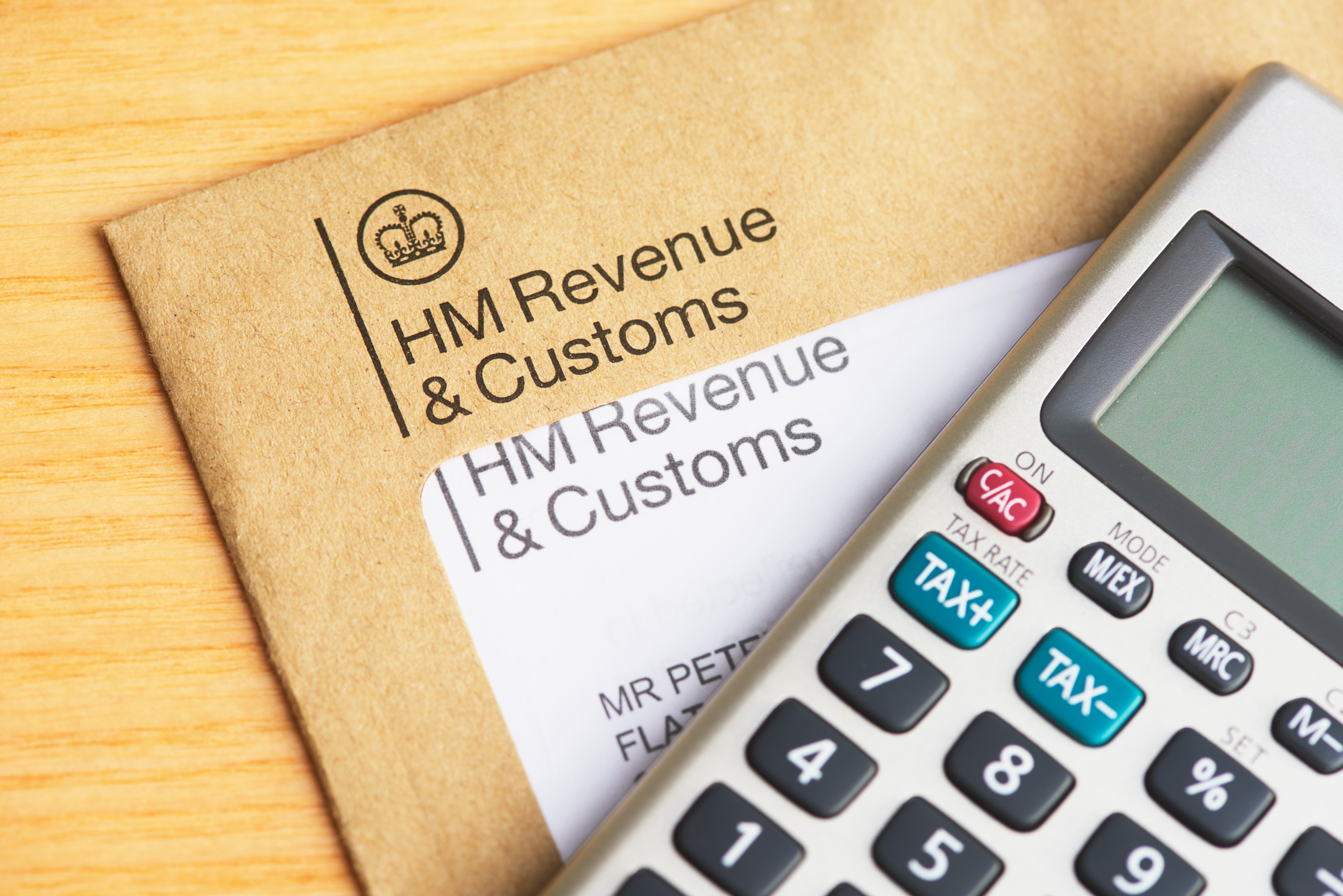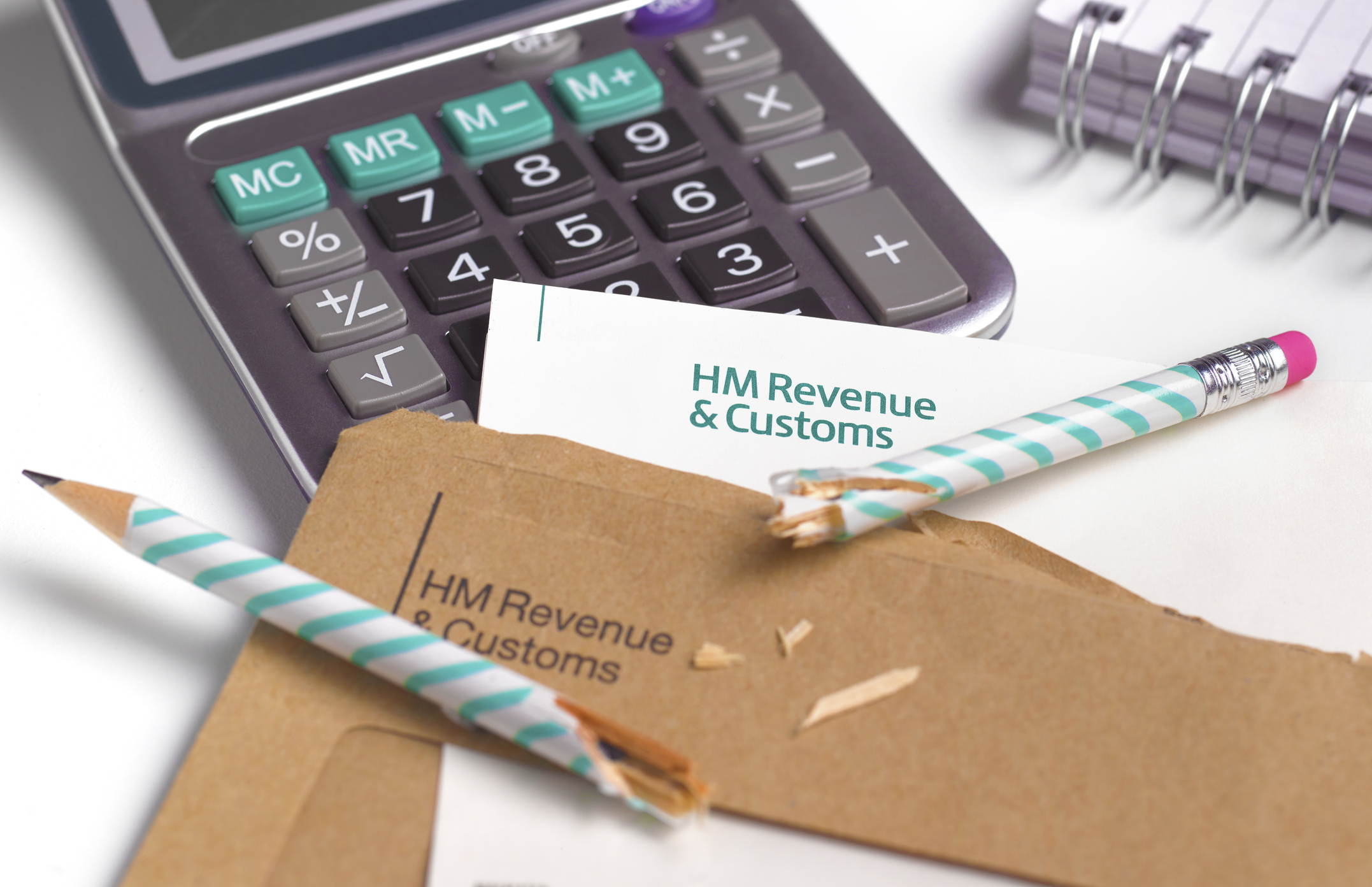HMRC savings tax crackdown: More workers to pay tax directly from their wages
Banks and building societies will be required to obtain National Insurance numbers from savers to make it easier for HMRC to tax those who breach their personal savings allowance


Get the latest financial news, insights and expert analysis from our award-winning MoneyWeek team, to help you understand what really matters when it comes to your finances.
You are now subscribed
Your newsletter sign-up was successful
Want to add more newsletters?

Twice daily
MoneyWeek
Get the latest financial news, insights and expert analysis from our award-winning MoneyWeek team, to help you understand what really matters when it comes to your finances.

Four times a week
Look After My Bills
Sign up to our free money-saving newsletter, filled with the latest news and expert advice to help you find the best tips and deals for managing your bills. Start saving today!
Savers are facing a tax crackdown as banks and building societies will be forced to share more of customers’ financial details to HMRC under new rules.
From April 2027, savings providers will be required to ask both new and existing customers for their National Insurance numbers to make it easier for HMRC to tax savers who breach their personal savings allowance.
The requirements – which affect savings accounts but not current accounts – will see more workers pay savings tax directly from their pay packets without submitting a self-assessment tax return.
MoneyWeek
Subscribe to MoneyWeek today and get your first six magazine issues absolutely FREE

Sign up to Money Morning
Don't miss the latest investment and personal finances news, market analysis, plus money-saving tips with our free twice-daily newsletter
Don't miss the latest investment and personal finances news, market analysis, plus money-saving tips with our free twice-daily newsletter
While HMRC already holds data from banks and building societies on interest credited or paid to customers, this does not always include National Insurance numbers.
An HMRC spokesperson tells MoneyWeek that the reforms will improve its “ability to match third-party data to taxpayer records”, including paying tax on savings income, helping “prevent error and fraud”.
They add: “These reforms will make it easier for customers to get their tax right first time.”
However, Stefanie Tremain, partner at the accountancy firm Blick Rothenberg, calls the rules “intrusive” and says there are “many opportunities for this to go wrong”.
She adds: “It seems that the pain will be felt by the taxpayer and in this case, the banks.”
How will the new rules affect savers?
Millions of savers pay tax on their interest each year. This is because they have non-cash ISA savings account(s), which pay out interest above their tax-free limit.
For example, basic-rate taxpayers have a personal savings allowance where they can earn up to £1,000 of interest tax-free each year.
For higher-rate taxpayers, that drops to £500, while additional-rate taxpayers get no allowance. Any tax due is levied at the same rate as the saver’s income tax band.
Cash ISAs pay interest tax-free to the saver, regardless of their income tax threshold, and are not affected by the reforms.
Under current rules, the amount savers earn in interest from traditional savings accounts is already shared with the taxman, but some of it is “unreadable”. This means the tax owed cannot be automatically collected.
HMRC usually collects savings tax by changing the customer’s tax code through the PAYE system. Alternatively, it can be paid via self-assessment.
According to an HMRC consultation, only about 37% of all accounts reported by financial institutions contain the customer’s National Insurance number.
The new rules say that savings providers must make “reasonable efforts” to obtain National Insurance numbers for new and existing “interest-bearing depository (savings) accounts”.
By doing this, HMRC says it will “help taxpayers get their tax right the first time, whilst closing the tax gap”.
So, savers may soon receive a request from their provider for their National Insurance number, if the provider does not already have this data.
When opening a savings account, there could also be a new field on the application form asking for the National Insurance number, alongside other information such as name, address and date of birth.
National Insurance numbers can be found on P60s, payslips and other documents, on someone’s digital Personal Tax Account, or via the HMRC app.
Savers already give their National Insurance number when opening a cash ISA.
Will this make it simpler for savers – or is it intrusive?
Tremain believes the reforms are intrusive, but says it’s because HMRC is “resource-constrained and increasingly forced to find ways to pass the administration of the tax code onto the taxpayer and (as is the case here) third parties”.
She also says relying on National Insurance numbers can be problematic.
“We do see older people who have never worked nor claimed benefits, who do not have [these numbers]. Similarly, foreign nationals who move to the UK but do not work or have the right to work, will not have them.”
According to Tremain, obtaining a National Insurance number is not straightforward [for adults] and usually requires an in-person meeting, which means there could be an influx of applications – and potentially delays to get one. Those born in the UK and turning 16 are automatically issued with the number.
“The additional administration burden may also reduce the attractiveness of the UK as an investment centre for those coming here, particularly if people are unable to open a bank account without a National Insurance number,” she warns.
Another issue is children’s savings accounts held by parents or grandparents as nominees. As people under the age of 16 don’t have National Insurance numbers, Tremain says there’s a risk interest could be incorrectly attributed to the account holder rather than the beneficial owner.
The reforms are expected to cost the taxman about £35 million, and the banks have said it could cost them millions to administer the change.
Rachel Springall, finance expert at Moneyfactscompare.co.uk, comments: “On the face of it, this looks like it will become a costly and long-winded change across providers to both request and update existing account details to include someone’s National Insurance number.”
She adds: “I wouldn’t be surprised if such changes to make an NI number mandatory, expected from April 2027, [will also] include current accounts, because many use these to earn interest too.”
How to make sure you pay the correct amount of savings tax
It’s important to keep your own records about your savings accounts and interest earned so you can provide evidence to HMRC if you feel you have been incorrectly taxed.
Tremain notes: “Where interest income has been automatically populated into a tax return the taxpayer should take care to make sure the information is correct.”
Where savings tax is collected via PAYE code, higher and additional-rate taxpayers in particular are at risk of overpaying, according to Tremain.
“This is already a flawed system as the correct amount of tax will only be collected if HMRC has not only the correct income figures, but the correct Gift Aid donation and personal pension contribution amounts,” she comments.
So it’s vital you double-check your records with your taxes – or ask your accountant or financial adviser to help if you have one.
Springall adds: “Millions of consumers are falling into higher-rate tax due to fiscal drag, and we don’t yet know what is going to come out of the Autumn Budget. Using cash ISAs will remain an essential way to protect any hard-earned cash from tax in the meantime.”
Get the latest financial news, insights and expert analysis from our award-winning MoneyWeek team, to help you understand what really matters when it comes to your finances.

Ruth is an award-winning financial journalist with more than 15 years' experience of working on national newspapers, websites and specialist magazines.
She is passionate about helping people feel more confident about their finances. She was previously editor of Times Money Mentor, and prior to that was deputy Money editor at The Sunday Times.
A multi-award winning journalist, Ruth started her career on a pensions magazine at the FT Group, and has also worked at Money Observer and Money Advice Service.
Outside of work, she is a mum to two young children, while also serving as a magistrate and an NHS volunteer.
-
 Should you buy an active ETF?
Should you buy an active ETF?ETFs are often mischaracterised as passive products, but they can be a convenient way to add active management to your portfolio
-
 Power up your pension before 5 April – easy ways to save before the tax year end
Power up your pension before 5 April – easy ways to save before the tax year endWith the end of the tax year looming, pension savers currently have a window to review and maximise what’s going into their retirement funds – we look at how
-
 Two million taxpayers to be hit by £100k tax trap by 2026/27
Two million taxpayers to be hit by £100k tax trap by 2026/27Frozen thresholds mean more people than ever are set to pay an effective income tax rate of 60% as their earnings increase beyond £100,000. We look at why, as well as how you can avoid being caught in the trap.
-
 13 tax changes in 2026 – which taxes are going up?
13 tax changes in 2026 – which taxes are going up?As 2026 gets underway, we look at what lies ahead in terms of changes to tax rates and allowances this year and how it will affect you.
-
 How to limit how much of your Christmas bonus goes to the taxman
How to limit how much of your Christmas bonus goes to the taxmanIt's Christmas bonus season but the boosted pay packet may mean much of your hard-earned reward ends up with HMRC instead of in your pocket
-
 Over 1 million pay 45% rate of income tax as fiscal drag bites
Over 1 million pay 45% rate of income tax as fiscal drag bitesHundreds of thousands more people are being pushed into the additional rate tax band by fiscal drag
-
 'I've used my annual ISA allowance. How can I shield my savings from tax?'
'I've used my annual ISA allowance. How can I shield my savings from tax?'As millions face paying tax on savings interest, we explore how to protect your money from the taxman. If you've used up your ISA allowance, we look at the other tax-efficient options.
-
 Simple assessment explained as millions brace for unexpected tax bills
Simple assessment explained as millions brace for unexpected tax billsIncreasing numbers of people could get letters from HMRC saying they owe more tax due to frozen thresholds, under a system known as simple assessment. Here is what it means for you.
-
 What are wealth taxes and would they work in Britain?
What are wealth taxes and would they work in Britain?The Treasury is short of cash and mulling over how it can get its hands on more money to plug the gap. Could wealth taxes do the trick?
-
 When is the self-assessment tax return deadline?
When is the self-assessment tax return deadline?If you are self-employed, rent out a property or earn income from savings or investments, you may need to complete a self-assessment tax return. We run through the deadlines you need to know about